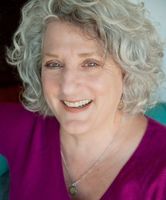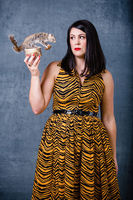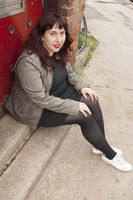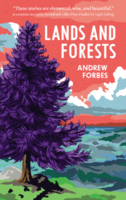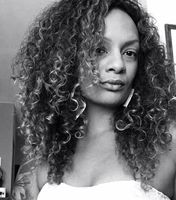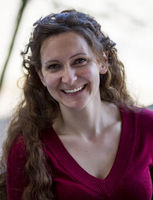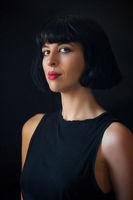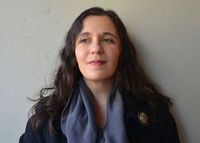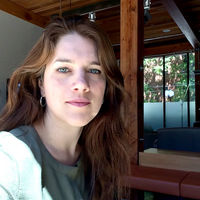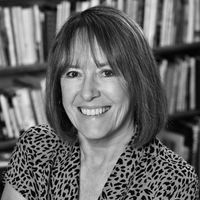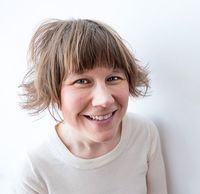The Ultimate Writing Tips Post: We Asked Talented Canadian Writers for Their Best Piece of Literary Advice
There is no shortage of advice for writers out there. You can find endless lists about the importance (or irrelevance) of outlines, writing everyday, having a writing group, and myriad other strategies for making your literary work the best it can be.
To cut through the noise, we asked some of our favourite Canadian writers for just one piece of advice - their ultimate, absolute best tip for writers both emerging and established. And their responses are incredible; this list contains not only practical and helpful tips, but inspiration and comfort for writers at any stage of the process. Read on to re-charge your literary batteries, courtesy of some of the most exciting voices in CanLit, with tips from Becky Blake, Nancy Jo Cullen, Dina Del Bucchia, Alicia Elliott, Andrew Forbes, Chelene Knight, Amanda Leduc, Kathryn Mockler, Robin Richardson, Rebecca Rosenblum, Emily Sanford, Carolyn Smart, Moez Surani, and Jessica Westhead.
Becky Blake
First drafts are special. They’re propelled by inspiration and often include some of our very best ideas. So before doing any editing, make sure to save a copy of your original work. After this, I recommend keeping a copy of every significant draft, just in case your editing for the day doesn’t go as planned. Knowing your work is protected creates a safety net so you can freely experiment with radical revisions.
Becky Blake is the author of Proof I Was Here (Wolsak & Wynn)
Nancy Jo Cullen
When anybody tells me they want to write I ask them if they read and there are a surprising number of people who want to write who rarely crack the spine of a book. So, I’d definitely say read. Read widely; there is so much to be learned from the work of other writers. I would also say try to keep to some kind of regular writing schedule if you can, set aside some sacrosanct time but also do not beat yourself up when life gets in the way of writing time, as it will. Just try to work your way back to your dedicated writing time and accept that being alive entails all kinds of work. Some of that will be writing.
Nancy Jo Cullen is the author of The Western Alienation Merit Badge (Buckrider Books/Wolsak & Wynn)
Dina Del Bucchia
Remember not all writing advice is universal. Now, that's good writing advice. But what I wanted to say is: always be more emotional. At least in your writing. If you're not giving some emotions in your work, you're not giving anything. Whether it's serious or funny, poetry, fiction or non-fiction, or a weird drawing with a caption. Stay emotional, friends! Unless it's not for you. I totally get it.
Dina Del Bucchia is the author of It's a Big Deal! (Talonbooks 2019)
Alicia Elliott
Not enough writers will tell you this, but your writing will be infinitely better, more insightful, and more honest if you start by interrogating your own beliefs - not just about writing, but about the world around you. For example, whose stories do you value and whose do you ignore? Why? Don't settle for the first answer that comes to mind. Keep pushing yourself, especially when it gets uncomfortable. When you come out the other side, your writing will carry inherent weight, intelligence and heart that writers who haven't done that work will never be able to access.
Alicia Elliott is the author of A Mind Spread Out On The Ground (Doubleday Canada)
Your CanLit News
Subscribe to Open Book’s newsletter to get local book events, literary content, writing tips, and more in your inbox
Andrew Forbes
The best advice I have received came by way of my friend and mentor, Richard Taylor, who said, and continues to say to his students, “Read, write, push.” A simple three-word mantra worth repeating daily. As I interpret these instructions, the order is important. Reading: absolutely vital. From it the rest flows. Writing: as in, do it. As in, sit down and work. Push: that boulder won't get to the top of that hill alone.
Andrew Forbes is the author of Lands and Forests (Invisible Publishing)
Chelene Knight
My biggest piece of writerly advice would be to embrace the mess. Know that the best writing is in the revision. You need to get that initial page vomit out so that you may begin your excavation and sculpting process. In other words, don't be afraid to ugly cry!
Chelene Knight is the author of Dear Current Occupant (Book*hug)
Amanda Leduc
DON’T GIVE UP. Seems simple, but it’s true! Your book, or books, all have birthdays, and they’ll come out into the world when they’re ready. And success will look different for each and every one of them, so hold on to whatever it is that you love about your work, and carry that with you as you go. You have to love the writing first.
Amanda Leduc is the author of The Miracles of Ordinary Men (ECW Press)
Kathryn Mockler
Avoid getting addicted to praise or external validation when it comes to your writing. While it feels great when someone responds positively to your work—whether it’s a compliment from a writer you admire, a publication, an acceptance into a program, or an award—try to not let that define who you are as a writer or your value because success or praise is subjective and often fleeting. And you have to find a way to push through when your work is being critiqued or rejected or you’re not doing your best writing. I’ve known writers who have given up if they didn’t get into a certain program or win an award or couldn’t get their book published. In terms sustaining a writing career over a long period of time with many ups and downs, try to value the process not the reward.
Kathryn Mockler is the author of The Purpose Pitch (Mansfield Press) and the forthcoming Watch Your Head: Stories, (Book*hug, 2021)
Robin Richardson
Read the best work you can find. Read a lot of it. Hold yourself to its standards. Find a good mentor. Don't seek validation but rather constructive and in-depth criticism. Work hard. Very hard. Find something worth saying. Self-examine. Don't complicate a simple concept, but rather simplify a complex concept. Don't aim to please or impress - aim to shatter, comfort, move, enlighten. Your work is not about you. It's about the reader. Cheer on your peers.
Robin Richardson is the author of Sit How You Want (Signal Editions, Vehicule Press)
Rebecca Rosenblum
You don't need a dialogue tag unless it is unclear from the context who is speaking. That was revelatory when I first heard it. b) Take a class or read a book on prosody if you don't understand it, or get a very patient poet to explain it to you. This matters even if you're a prose writer--poets probably already have done it. I can't write poetry and probably never will, but it matters to me to have investigated some of the technical aspects of how language can work. I don't know if you can hear it when you read my work but I can hear it when I write. c) Find out from someone experienced working with artists how to do your taxes as an artist. Most tax software and even some tax professionals won't do it correctly without guidance.
Rebecca Rosenblum is the author of So Much Love (McClelland and Stewart)
Emily Sanford
The main piece of advice I hear – and believe – and give, is show up for your craft.
That can mean different things at different times in a full life, so here are my guidelines:
1. Sit down and write.
2. If you can't write, edit.
3. If you can't edit, read.
4. If you can't read, attend a reading.
5. If you can't attend a reading, make a schedule for all the above, then return to #1.
Emily Sanford is the author of "You Wave", premiered at "Words and Music", performed by Exultate Chamber Singers, directed by Mark Ramsay
Carolyn Smart
For many years, my advice has been the same: write for yourself, write what engages you, don’t think about the marketplace. Be both rigorous and resilient. Treat your writing life as if it were an obstacle race: you’re going to fall down, but you’ve got to get up and go on. Perseverance is key. Read widely, read aloud, and listen to the world around you. Feed your inner life.
Carolyn Smart is the author of Careen (Brick Books)
Moez Surani
Blend irony and joy.
Moez Surani is the author of ةيلمع Operación Opération Operation 行 动 Oперация (Book*hug)
Jessica Westhead
Many years ago, I was told (I can’t remember by who, but they had some authority and their feedback mattered to me) that I shouldn’t be using so many flashbacks in my stories, so I completely stopped using them for a while. Years later, I reconsidered that advice (which felt more like a directive at the time) and decided it didn’t work for me. I was also inspired by a wonderful writing talk by Meg Wolitzer about life being like a river, and how we’re constantly moving backwards and forwards through time in our minds...so why shouldn’t fiction mimic that? I love how flashbacks can make time feel elastic in fiction—because time is this way in real life too. One moment we’re grounded in the present, and the next moment we’re in our heads, tunnelling back to somewhere in our past and re-experiencing some distant event that had a profound (or even not-so-profound) effect on us. Different bits of advice reach us at different stages of our writing careers, but when we hear things earlier on, at a point when we might not have the same confidence we develop later, and we don’t know that we can disregard stuff that doesn’t resonate, we can put too much stock in those “rules” that aren’t actually rules at all. Shake numerous grains of salt on all of it, I say.
Jessica Westhead is the author of Worry (HarperCollins Canada)
_________________________________________________

